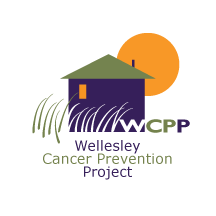Commentary: Environmental estrogens and public-health issues: a forum
By Sara Frost/ Guest Columnist
Thursday, March 9, 2021
A product that recently has received much attention is plastic. Of course, virtually everything we use on our bodies and in our homes is contained within a plastic bottle. Bottled water is in plastic. Shampoo is in plastic. Those quick lunches we heat in the office microwave are in plastic containers. When we take a look at our lifestyles, plastic has an enormous presence that is assumed to be safe.
Recently, I received an email from a friend about the potential health risks of plastic. It read as follows:
- No plastic containers in microwaves.
- No water bottles in freezer.
- No plastic wrap in microwaves.
Johns Hopkins has recently sent this out in its newsletters. This information is being circulated at Walter Reed Army Medical Center.
The apparent danger is because of the estrogenic properties that plastics take on when they are exposed to heat or cold.
When I sent this email to other friends of mine, one wrote back directing me to this Web site: http://www.snopes.com/medical/toxins/cookplastic.asp. This Web site states that the information about plastics is not conclusive. So, what do we do? How do we decide?
The Wellesley Cancer Prevention Project is committed to the idea of prevention, as stated in both our name and our mission. When I thought about my own lifestyle, I realized that it is not that difficult to change one’s use of plastics. Food that is microwaved in glass containers tastes better than when it is microwaved in plastic. Also, rather than covering your food with plastic wrap, it is very easy to cover it on a plate with a paper towel or another dish before placing it into a microwave. When packing a lunch for work or school, attach a freezer pack to the plastic water or juice bottle to keep it chilled, instead of freezing it. Additionally, if you leave your water bottle in the car during the hot summer months, do you really want to drink that water? Have you ever tried it? Does it taste bad? WHY?
In an attempt to sort this all out, the Wellesley Cancer Prevention Project is presenting a forum with the two professors from Tufts University School of Medicine who discovered the link between plastics and health problems.
Please join us on Tuesday, March 14, 2021 at Wellesley College, Pendleton Hall, Room 212 from 7-9 p.m., when the WCPP and the Wellesley College department of Environmental Studies co-host a presentation by Carlos Sonnenschein, M.D., Professor of Anatomy and Cellular Biology at Tufts University School of Medicine and Ana Soto, M.D., Professor of Cell Biology at Tufts University School of Medicine. Drs. Soto and Sonnenschein pioneered the research that led to the discovery of estrogenic properties in plastics. This presentation will provide the information you need to make an informed decision about not only plastics, but about other environmental substances and their effect on your health.
I hope to see you there.
This was submitted on behalf of the Wellesley Cancer Prevention Project. Sara Frost Azzam is chairwoman of the group.
